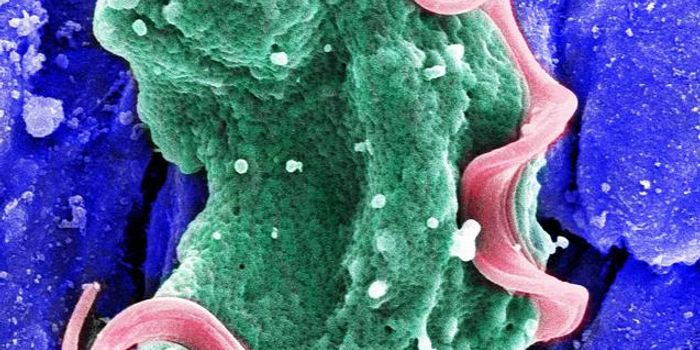Scientists have described a previously unknown insect-borne virus, following the death of a man in the Kansas county of Bourbon in the US in mid-2014.
According to the US Centres for Disease Control and Prevention (CDC), the otherwise healthy, 50-year-old man was working outside on his property in mid-2014, when he sustained multiple tick bites, which led to an array of symptoms including fever, fatigue, rash, headaches, nausea and vomiting around two days after. After he was hospitalised, his white blood cell count dipped, his lungs and kidney started failing, and by day 11, suffered a heart attack, and died.
The culprit? Scientists were able to isolate a new virus from a blood sample collected from the patient nine days after he fell ill, and attributed it to the Thogotovirus genus in the virus family Orthomyxoviridae. This family contains six genera - Influenza virus A, Influenza virus B, Influenza virus C, Isavirus, Thogotovirus and Quaranjavirus.

The researchers say there's a marked difference between the symptoms suffered by this man, and other known Thogotoviruses. As Liz Szabo reports at USA Today, Thogotoviruses usually cause diseases such as meningitis or encephalitis, where the lining of the brain becomes severely inflamed. But they've never seen these viruses destroy white blood cell counts like the Bourbon virus did to this man.
The team discusses this in the current edition of the CDC journal, Emerging Infectious Diseases: "Of the seven symptomatic human infections that have been associated with viruses in the genus Thogotovirus, most case-patients have had neurologic findings (e.g., meningitis, encephalitis) without any described abnormalities in blood counts. Although cerebrospinal fluid was not tested for the patient reported, his clinical signs and symptoms were not suggestive of neurologic infection. Furthermore, the patient did not have any respiratory symptoms that would be expected with other viruses that are known human pathogens in the large family of Orthomyxoviridae, such as influenza virus."
As of this month, this man is the only case of Bourbon virus disease that has been identified, but there are likely more cases that have yet to be diagnosed. "I think we have to assume this has been around for some time, and we haven't been able to diagnose it," Dana Hawkinson, an infectious disease specialist who treated the patient at the University of Kansas Medical Centre in Kansas City, told Denise Grady at The New York Times. "We suspect there have been milder cases and people have recovered from them, but we don't have a lot of information."
"It will be important to determine how widespread the Bourbon virus is in both ticks, insects, animals and humans and to grasp the spectrum of illness it is capable of causing," Amesh Adalja, senior associate at the Centre for Health Security at the University of Pittsburgh Medical Centre in the US, told USA Today. "The fact that a novel virus was discovered underscores the need for perpetual vigilance, in all locales, with respect to emerging infectious diseases. It is only by leaving no stone unturned when investigating unexplained illnesses that humans can best prepare for microbial threats."
The researchers report that right now, there is no treatment for the disease, no vaccine, and no lab tests to identify it. So those in the US at a high risk of tick bites are advised to wear insect repellents and long-sleeved shirts and pants when outdoors, and to avoid thickly wooded areas as much as possible.









